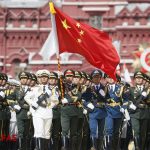
Diplomatic Tensions Lead to a Sharp Decline in Indian Tourists Visiting Maldives

Amid escalating diplomatic tensions between New Delhi and Male, the number of Indian tourists visiting the Maldives has plummeted by one-third, according to data from the Maldives Tourism Ministry reported by the Maldivian website Adhadhu.
The statistics reveal a significant drop in Indian tourist arrivals, with 27,224 recorded as of March 2 this year compared to 41,054 during the same period last year, marking a decline of 33 percent. India, which held the second-largest market share for Maldives tourism in 2023, has now slipped to sixth place with a six percent market share.
The diplomatic dispute stems from derogatory comments made by three Maldivian deputy ministers against Indian Prime Minister Narendra Modi regarding his visit to Lakshadweep. PM Modi’s call to develop the Indian island cluster for beach tourism and promote domestic tourism triggered a backlash, resulting in a diplomatic standoff.
In response, New Delhi summoned the Maldivian envoy, registering a strong protest against the offensive remarks. The three deputy ministers were suspended, albeit with pay, following the incident.
The tensions escalated further as a boycott campaign gained momentum in India, drawing support from popular Indian film stars. Concerns within the Maldives tourism industry grew as the boycott campaign threatened to impact booking cancellations by Indian guests. The Maldives Association of Travel Agents and Tour Operators (MATATO) conducted a survey to assess the situation, though the findings were not publicly disclosed.
While India remained the leading tourist market for the Maldives from 2021 to 2023, the current scenario has witnessed a shift, with China emerging as the top market, recording over 54,000 tourist arrivals this year.
As diplomatic efforts continue to address the strained relations between India and the Maldives, the tourism sector in the island nation grapples with the repercussions of the decline in Indian tourist arrivals, highlighting the broader impact of geopolitical tensions on regional tourism economies.














Comments